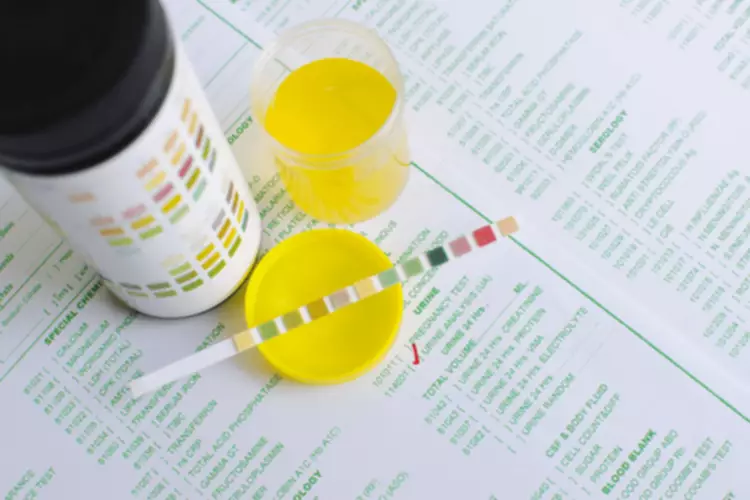
Because they are able to prescribe medication, psychiatrists can be particularly helpful if you believe you have underlying anxiety or depression you are managing with alcohol. One common mistake for those who are new to alcohol and drug recovery is substituting a new compulsive behavior for their old one. People new to recovery can find themselves approaching their new diet, exercise program, job, and even participation in support groups with a compulsion that echoes addiction. You may also experience what is commonly called sobriety fatigue, which refers to the overall exhaustion that may occur as a result of the emotional and physical stress of staying sober. So, it’s extra helpful to have a support network available to you when you need it. HAMS is a peer-led group that provides support and information to those who want to change their drinking habits.
- These resources provide valuable support, information, and tools to assist you in your journey toward a healthier, alcohol-free life.
- Oar Health offers science-backed, effective treatment for people ready to change their relationship with alcohol.
- Try to incorporate exercise into your daily routine, even if it’s just a short walk.
Achieving Long-Term Sobriety: Sober Without AA Alternatives
The second study, Project MATCH (discussed above; see criterion 4), randomized subjects to staying sober without aa 12-step facilitation treatment (TSF), cognitive behavioral therapy (CBT), or motivational enhancement (MET). In the aftercare arm, there were no significant differences between the three treatments, with over two-fifths abstinent at the 1-year follow-up (results not shown). In the Project MATCH outpatient arm, rates of alcohol abstinence were significantly higher for those treated in TSF at 1 year 2, Table 4 and 3 years 3 (Figure 4b). As noted above (criterion 4), AA participation among Project MATCH clients predicted subsequent abstinence, regardless of study arm or condition.
- Alcoholics Anonymous (AA), Narcotics Anonymous (NA), and SMART Recovery are popular options.
- The further you stray from who you used to be, the more you feel that you can’t relate to others (or that they can’t relate to you).
- If none of these options sound good to you, you can build the recovery community you feel is lacking in the world.
- There are many reasons why someone may choose to stay sober without AA.
- But if AA or recovery groups in general aren’t for you, consider meeting with a counselor to help you create healthy coping mechanisms and beneficial means of dealing with unwanted thoughts and behaviors.
I am not powerless over my addiction. And the concept of GOD really cannot help me.

Rehab centers can offer a range of treatment methods, including counseling, therapy, and medication-assisted treatment. Inpatient rehab programs can provide individuals with a supportive environment that can help them maintain Sobriety. It’s important to find the support and resources that work best for you. Whether you find support online, in person, or through other means, the most important thing is that you are taking steps to stay sober and live a healthy, fulfilling life. It is important to note that staying sober without AA does not mean you are alone in your recovery journey. There are many resources available to help you stay on track and prevent relapse.
Medication
It offers a variety of tools and techniques, such as self-monitoring, goal-setting, and cognitive-behavioral therapy, to help individuals achieve their goals. Moderation Management also has an online community where members can connect and support each other. Women for Sobriety also offers online meetings, phone support, and a forum where members can share their experiences and support each other. Exploring outpatient programs can introduce an individual to sober peers, some of whom may share certain interests or hobbies, making them a great place to start. A trigger relapse is a form of relapse where an individual begins engaging with drugs or alcohol again. Seeing commercials for alcohol and returning to places where drugs were commonly used in the past can all challenge a person’s sober conviction and be difficult to navigate.

Let’s Take the Next Steps Together
This may give them the courage to make it through their days without drinking. Others place encouraging words on their phones, desks, and around their workspaces. They do this to provide constant reminders of how wonderful the world can be without alcohol. Once people decide to stop drinking, they may choose to attend AA. But, if people do not want to participate in AA or similar groups, they may look for other types of assistance.
This paper was presented as the plenary address to the American Society of Addiction Medicine 43 by the 2007 recipient of the R. The work was supported by grants from NIAAA (R01 AA 14688, P50 AA 5595, and R01 AA 09750). The author would like to acknowledge the helpful feedback received from colleagues, including Drs. There is no shame or guilt in asking for help or more information.

2007 research shows that continued therapy significantly improves long-term sobriety rates. Strictly speaking, sobriety is the state of being sober—not being under the influence of alcohol or drugs. However, the word is often used in different ways in different contexts. Many 12-step programs suggest that sobriety means total abstinence, which means never using the substance again.
Staying Sober: 13 Strategies
If your home life, work life or social scene is causing stress and/or tempting you to drink more than you should/want to, it might be time to change things up. Distance yourself from people who threaten the success of your sobriety. Your first responsibility is to your recovery, and it’s important to protect it by making necessary changes. Maybe peer support groups are not your thing, and you desire an alternative to support groups not because of the spiritual aspect, but because you want to focus on recovery in a more individual manner. While it’s still crucial to lean on your loved ones and meet routinely with your therapist, there are daily practices you can put into place to foster a sober lifestyle on your own. Our treatments are tailored to serve each person’s unique needs and you can read about both Oar members who want to quit drinking entirely as well as Oar members who want to moderate their drinking.
- Numerous other support groups, including SMART Recovery groups, LifeRing groups and SOS Alcoholism Program.
- Start a group in your area or on a social networking site like Facebook, and watch it grow.
- There are many amazing websites, groups, chat rooms, and many other places on the internet that can help with your sobriety and recovery.
My stay at Silver Ridge has been like no other and I will be forever grateful for the gifts it has given me. Researchers stated that mindfulness techniques for addiction usually target addictive behaviors like cravings, and teach you how to apply these techniques in everyday life. Check with your health insurance provider, ask friends for referrals, or browse therapy directories like Psychology Today and GoodTherapy. With a Reddit account, you can protect your privacy and stay anonymous. Because r/stopdrinking is public, you can read its discussions without commenting or even creating a Reddit account.
Find a recovery community
Most people who make their way into recovery have left a lot of pain and suffering in their wake. Feeling guilty or ashamed of past behavior or actions during active addiction is natural and healthy. Financial troubles and problems finding and keeping employment are major triggers for relapse, but it is possible to take baby steps and get your finances in order. Research shows that if you maintain these types of toxic relationships, your chances of relapsing are greater.